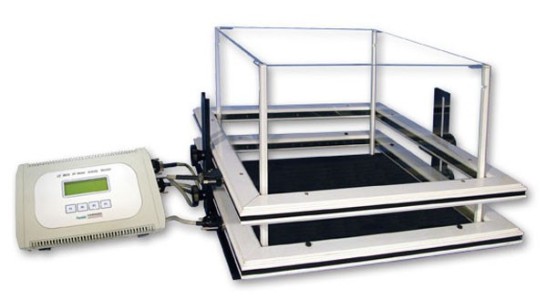Authors
H. Houchi, V. Warnault, E. Barbier, C. Dubois, O. Pierrefiche et al.
Lab
Université de Picardie Jules Verne, Groupe de Recherche sur l‘Alcool et les Pharmacodépendances (GRAP), Equipe Région INSERM 24 (ERI24), Amiens, France
Journal
Genes, Brain and Behavior
Abstract
We have shown previously that mice lacking the adenosine A2A receptor (A2AR) generated on a CD1 background self-administer more ethanol and exhibit hyposensitivity to acute ethanol. We aimed to investigate if the increased propensity of A2A_/_ mice to consume ethanol is associated with an altered sensitivity in the motivational properties of ethanol in the conditioned place preference (CPP) and conditioned taste aversion (CTA) paradigms and with an altered development of sensitization to the locomotor effects of ethanol. We also tested their sensitivity to the anxiolytic effects of ethanol. Our results show that A2A_/_ mice produced on a CD1 background displayed a reduced ethanol-induced CPP and an increased sensitivity to the anxiolytic and locomotor-stimulant effects of ethanol, but they did not show alteration in ethanol-induced CTA and locomotor sensitization. Ethanol-induced CPP, ethanol consumption and the locomotor effects of ethanol were also tested in A2A_/_ mice produced on a C57BL/6J background. Our results emphasized the importance of the genetic background because alteration in ethanol consumption and preference, ethanol-induced CPP and locomotor-stimulant effects were not found in knockout mice produced on the alcohol-preferring C57BL/6J genetic background. Finally, the A2AR agonist, 2-p-(2-carboxyethyl)-phenylethylamino-5_-N-ethylcarboxamidoadenosine hydrochloride (CGS 21680), reduced ethanol consumption and preference in C57BL/6J mice. In conclusion, A2AR deficiency in mice generated on a CD1 background leads to high ethanol consumption that is associated with an increased sensitivity to the locomotor-stimulant/anxiolytic effects of ethanol and a decrease in ethanol-induced CPP.
BIOSEB Instruments Used
Infrared Actimeter (LE8815)
Keywords/Topics
Miscellaneous research domains
Source :
http://onlinelibrary.wiley.com/doi/10.1111/j.1601-183X.2008.00427.x/full

 Pain - Thermal Allodynia / Hyperalgesia
Pain - Thermal Allodynia / Hyperalgesia Pain - Spontaneous Pain - Postural Deficit
Pain - Spontaneous Pain - Postural Deficit Pain - Mechanical Allodynia / Hyperalgesia
Pain - Mechanical Allodynia / Hyperalgesia Learning/Memory - Attention - Addiction
Learning/Memory - Attention - Addiction Physiology & Respiratory Research
Physiology & Respiratory Research











![Dynamic Weight Bearing 2.0 – Postural Module [Add-on]](https://bioseb.com/733-home_default/dynamic-weight-bearing-20-add-on-postural-module.jpg)
























 Pain
Pain Central Nervous System (CNS)
Central Nervous System (CNS) Neurodegeneration
Neurodegeneration Sensory system
Sensory system Motor control
Motor control Mood Disorders
Mood Disorders Other disorders
Other disorders Muscular system
Muscular system Joints
Joints Metabolism
Metabolism Cross-disciplinary subjects
Cross-disciplinary subjects CONFERENCES & MEETINGS 2026
CONFERENCES & MEETINGS 2026 